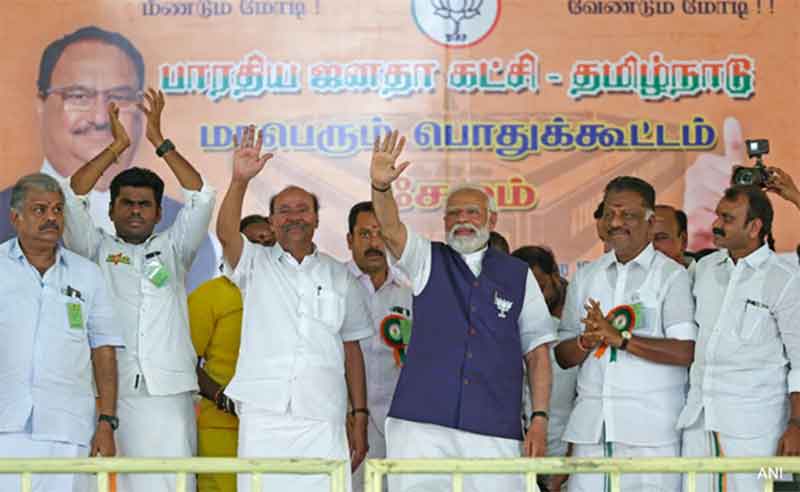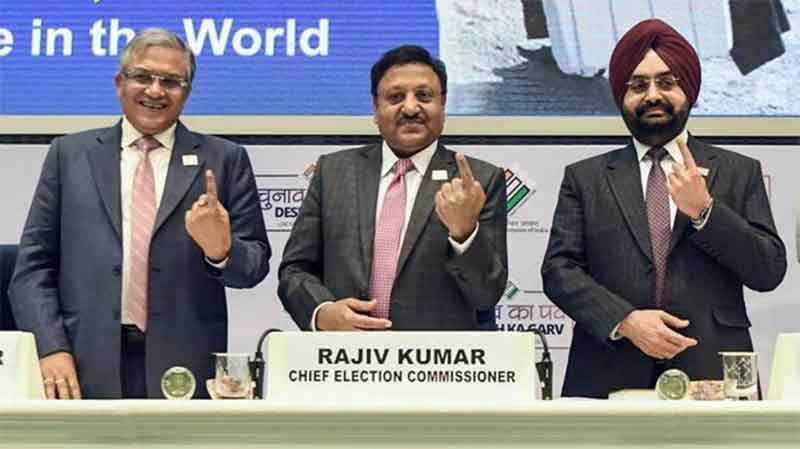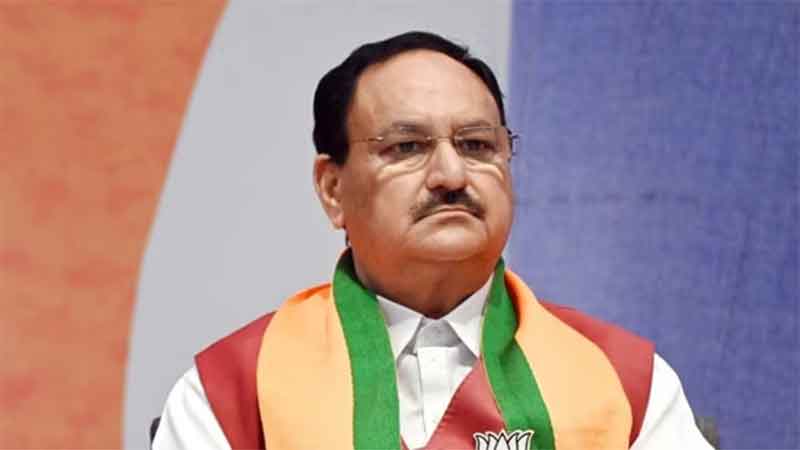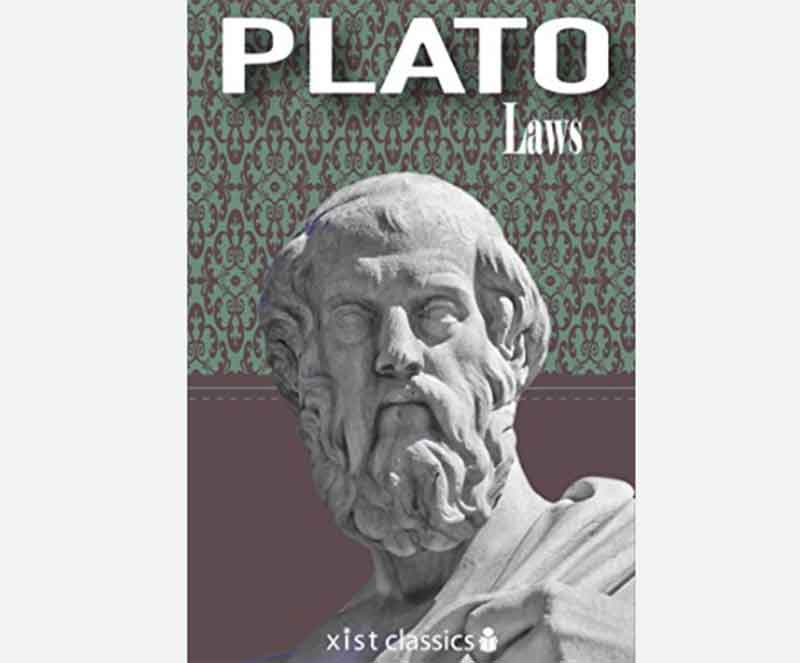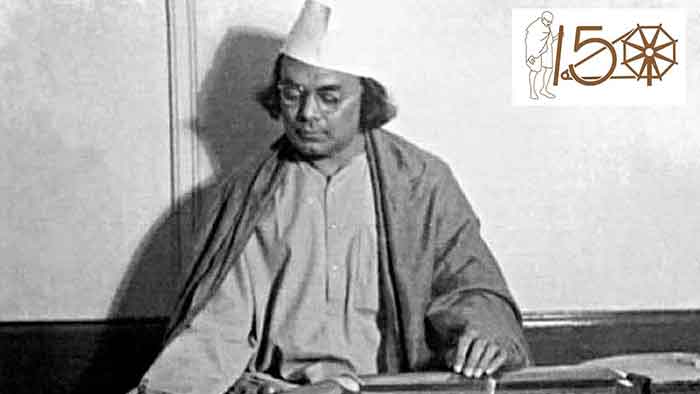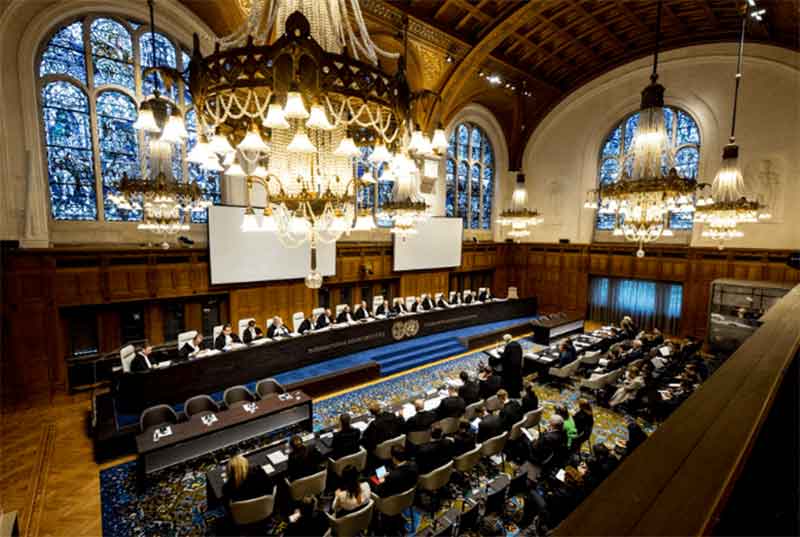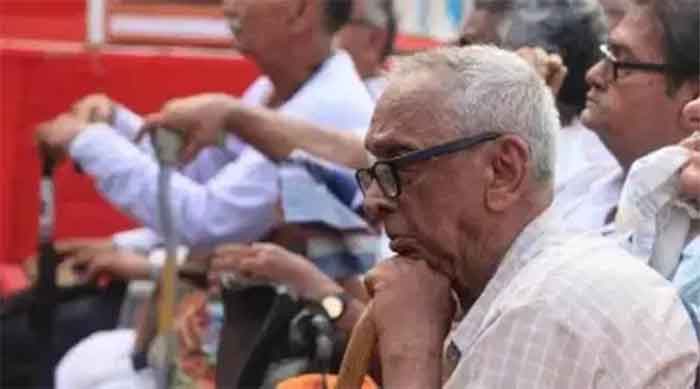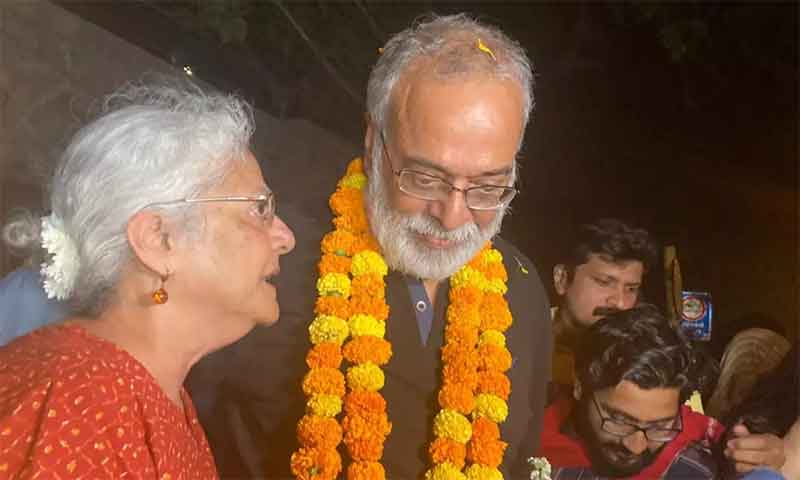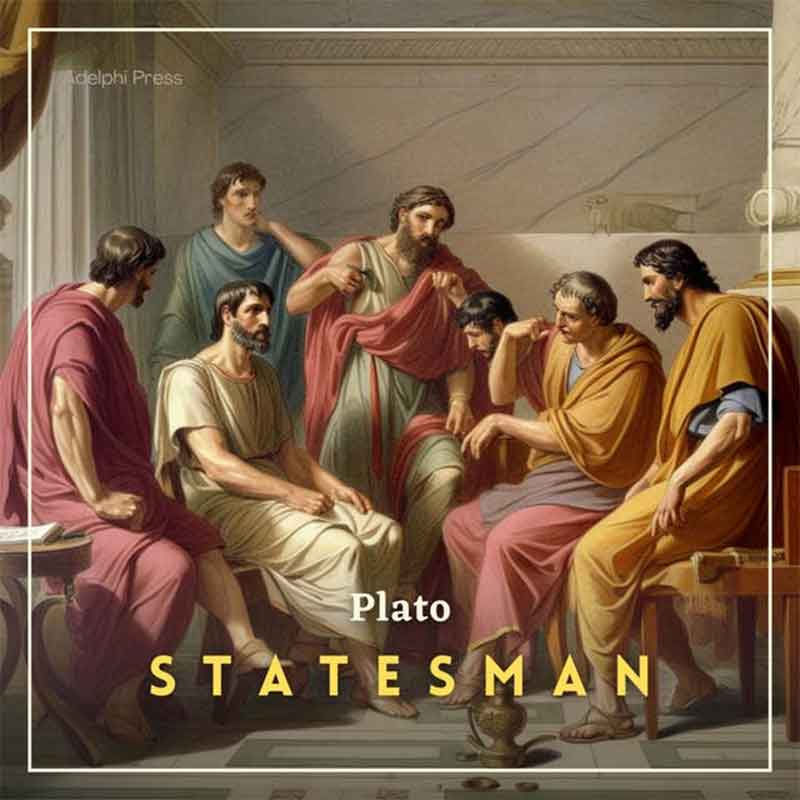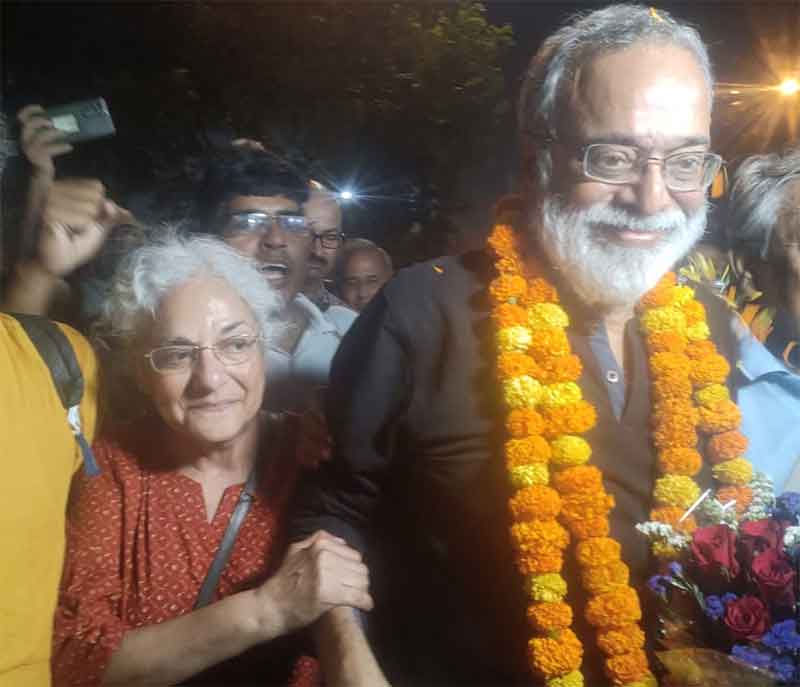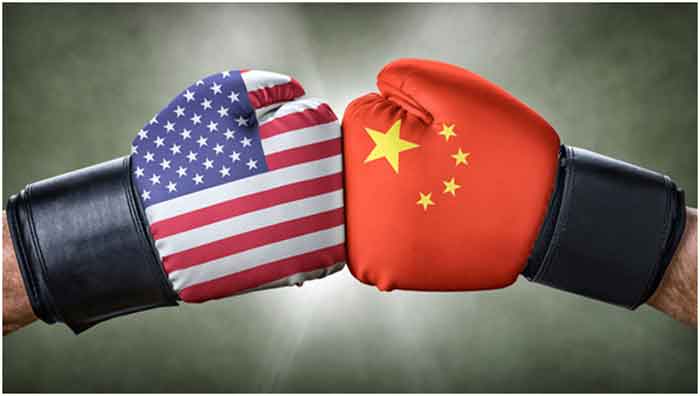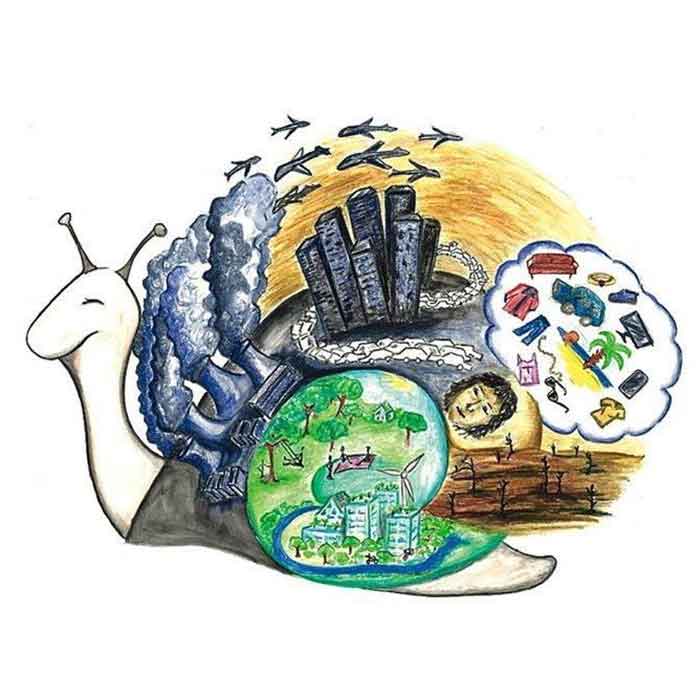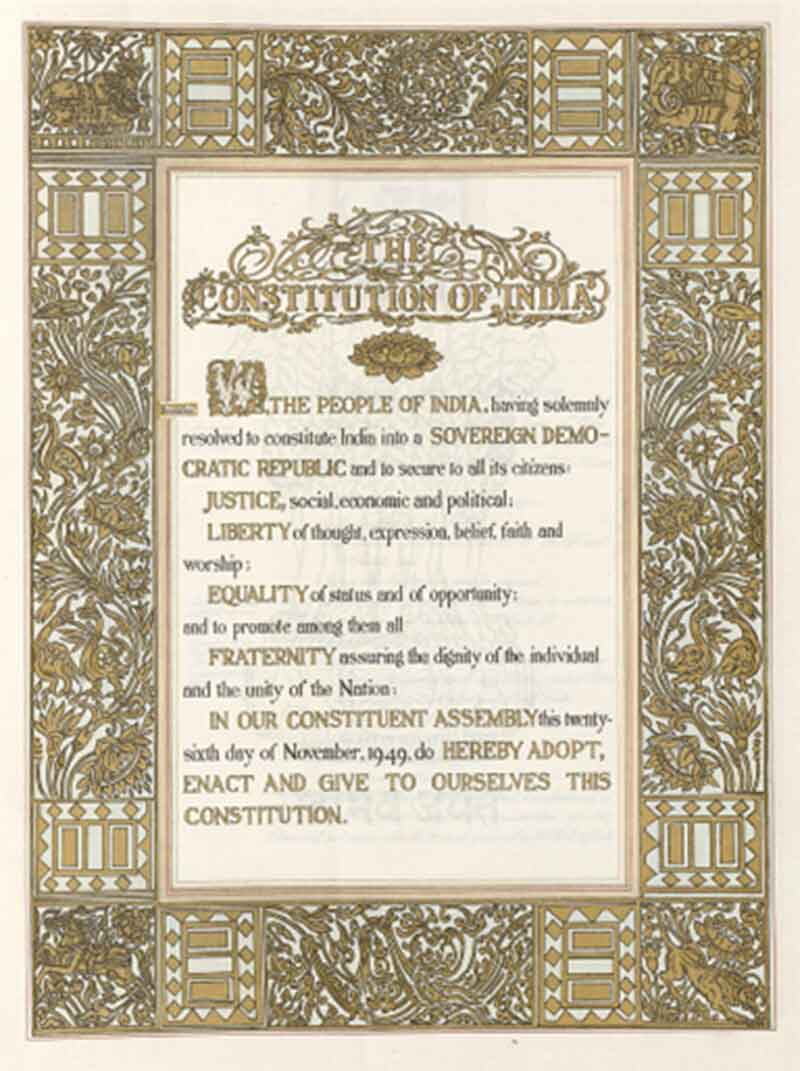
Amid India’s vibrant election season, technology and politics converge at unprecedented levels, as AI transforms traditional campaign tactics. This article delves into the intersection of historical legacies and forward-looking aspirations, highlighting the impact of digital resurrection on modern electoral strategies. The use of AI to resurrect deceased politicians like H. Vasanth Kumar and M. Karunanidhi raises ethical questions about political manipulation and legacy ownership. Globally, controversies over AI’s role in politics underscore the urgent need for regulatory frameworks. As AI blurs authenticity and manipulation, its impact on voter behaviour remains uncertain, prompting stakeholders to navigate uncharted ethical territories in the digital age.
A Unique Campaign Strategy
Movie star-turned-politician Vijay Vasanth’s recent campaign in Kanyakumari paints a vivid picture of modern electoral efforts. While traversing the town in an open jeep under the scorching sun, Vasanth’s campaign unfolds as a blend of classic outreach and cutting-edge innovation. Children clamour for sweets as he waves to onlookers, but behind the scenes, his campaign manager unveils a striking video featuring Vasanth’s deceased father, H. Vasanth Kumar. This video, leveraging AI, resurrects Kumar’s image and voice to lend support to his son’s electoral bid, embodying a novel approach to engaging voters.
Divyendra Singh Jadoun readily shares a catalogue of videos, audio recordings, and images from his computer whenever asked about his work. Among these, there is a video showing an Indian politician conversing fluently in multiple Indian languages about government projects. In an audio clip, a political party representative calls a voter to discuss local issues and gather suggestions. The remarkable aspect is that some of these visuals and audio recordings are incredibly realistic, created using artificial intelligence. To a casual observer, it would be difficult to discern that these materials, along with others in Jadoun’s collection, are AI-generated.
Ethical Dilemmas of “Soft Fakes”
The use of AI to recreate the presence of deceased politicians like H. Vasanth Kumar and M. Karunanidhi raises critical ethical questions. Digital rights activists express concerns about political manipulation boundaries and legacy ownership in the era of “soft fakes.” However, within India’s cultural context, eulogising the deceased is deeply ingrained, adding complexity to debates about AI’s role in political campaigns and the ethical implications of synthetic media manipulation. These dilemmas highlight the need for robust ethical frameworks to navigate the evolving landscape of AI-driven political communication and legacy preservation. In other words, AI is being utilised to leverage deceased politicians across various political parties, including right-wing groups, who spare no effort to steer agendas in their preferred direction.
Global Trends and Controversies
Beyond India’s borders, similar controversies over AI’s role in politics have emerged. From AI-generated robocalls impersonating world leaders to deepfake technologies altering public perceptions, countries worldwide grapple with the implications of synthetic media on democratic processes. The escalating manipulation facilitated by AI underscores the urgent need for regulatory frameworks and ethical guidelines to safeguard electoral integrity. Jadoun, the founder of Polymath Solution, established this synthetic media company to produce AI content for politicians starting in November of last year. In just six months, this nine-member company, operating from an office in the small western Indian town of Pushkar, has partnered with several prominent political parties for election campaigns, including the ruling Bharatiya Janata Party (BJP) and the main opposition party, the Indian National Congress.
AI as a Political Tool
In India’s electoral arena, AI is not merely a technological novelty but a pivotal tool for politicians across party lines. Prime Minister Narendra Modi utilises AI to translate his speeches in real-time, while opposition leaders like Shashi Tharoor experiment with AI avatars for public engagement. The rapid adoption of AI in political communication signifies a paradigm shift akin to historical advancements such as newspapers, film, and television. AI content creators are in high demand among national and regional politicians in India during what is being heralded as the world’s largest election. According to several top AI content agencies, there is more demand than they can handle, with political parties across the country allocating over $50 million towards AI-generated campaign materials this year. Despite aiming to maximise their earnings, these AI content companies are actively filtering out “unethical” requests for fabricated content that could potentially spread misinformation.
Challenges and Future Outlook
As AI blurs the boundaries between authenticity and manipulation, its impact on voter behaviour remains a subject of speculation. The proliferation of deepfake technologies poses challenges far beyond traditional misinformation tactics, signalling a transformative shift in public discourse. In an age dominated by generative AI, the core principles of effective communication in politics undergo a profound reevaluation, prompting stakeholders to navigate uncharted ethical territories. Thus, the fusion of AI and politics in India’s electoral landscape illuminates a multifaceted narrative of innovation, controversy, and ethical reflection. As the boundaries between reality and simulation continue to blur, the enduring principles of democratic governance face unprecedented tests in the digital age.
Conclusion
The intersection of AI and politics in India’s electoral landscape presents a fascinating yet complex narrative. The use of AI to resurrect deceased politicians and create synthetic media for campaign purposes raises critical ethical questions and underscores the need for robust regulatory frameworks. While AI content companies like Polymath Solution capitalise on the surging demand from political parties, they are also committed to filtering out unethical requests to mitigate the spread of misinformation.
As technology continues to evolve, the ethical implications of AI-driven political communication will remain a focal point of discussion. It is imperative for stakeholders, including policymakers, digital rights activists, and AI content creators, to collaborate in shaping ethical guidelines that uphold the integrity of democratic processes and protect societal values in an increasingly digital world.
Mohd Ziyauallah Khan is a freelance content writer based in Nagpur. He is also an activist and social entrepreneur, co-founder of the group TruthScape, a team of digital activists fighting disinformation on social media.





